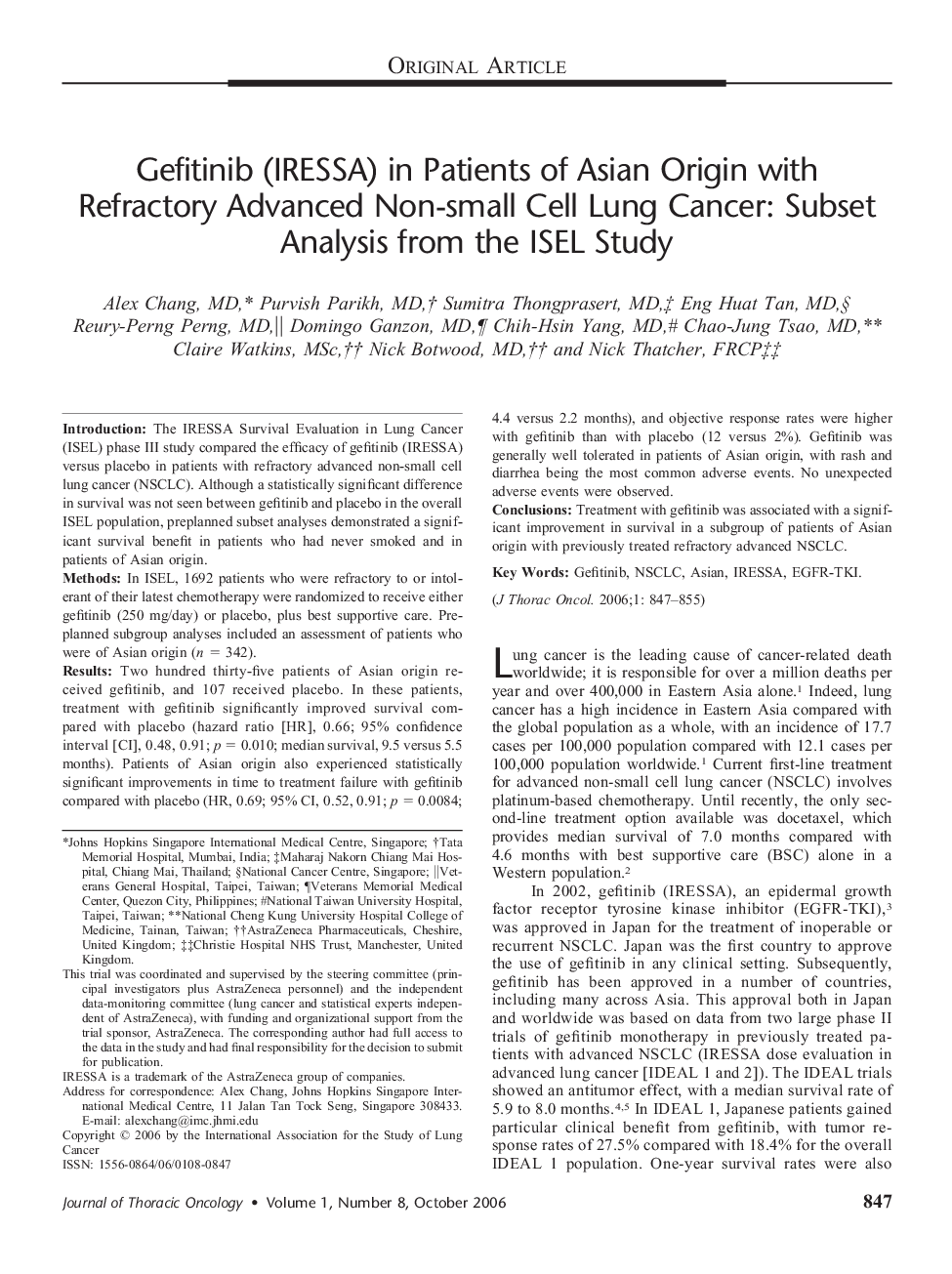| Article ID | Journal | Published Year | Pages | File Type |
|---|---|---|---|---|
| 3991735 | Journal of Thoracic Oncology | 2006 | 9 Pages |
IntroductionThe IRESSA Survival Evaluation in Lung Cancer (ISEL) phase III study compared the efficacy of gefitinib (IRESSA) versus placebo in patients with refractory advanced non-small cell lung cancer (NSCLC). Although a statistically significant difference in survival was not seen between gefitinib and placebo in the overall ISEL population, preplanned subset analyses demonstrated a significant survival benefit in patients who had never smoked and in patients of Asian origin.MethodsIn ISEL, 1692 patients who were refractory to or intolerant of their latest chemotherapy were randomized to receive either gefitinib (250 mg/day) or placebo, plus best supportive care. Preplanned subgroup analyses included an assessment of patients who were of Asian origin (n = 342).ResultsTwo hundred thirty-five patients of Asian origin received gefitinib, and 107 received placebo. In these patients, treatment with gefitinib significantly improved survival compared with placebo (hazard ratio [HR], 0.66; 95% confidence interval [CI], 0.48, 0.91; p = 0.010; median survival, 9.5 versus 5.5 months). Patients of Asian origin also experienced statistically significant improvements in time to treatment failure with gefitinib compared with placebo (HR, 0.69; 95% CI, 0.52, 0.91; p = 0.0084; 4.4 versus 2.2 months), and objective response rates were higher with gefitinib than with placebo (12 versus 2%). Gefitinib was generally well tolerated in patients of Asian origin, with rash and diarrhea being the most common adverse events. No unexpected adverse events were observed.ConclusionsTreatment with gefitinib was associated with a significant improvement in survival in a subgroup of patients of Asian origin with previously treated refractory advanced NSCLC.
